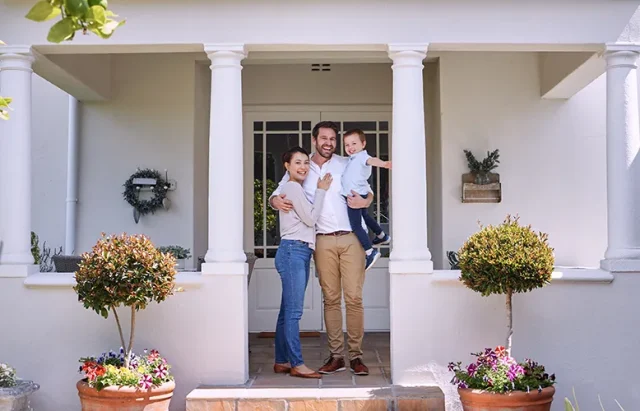
Moving into a new home – your first as a homeowner – is an intense experience. There’s the celebration of finally owning real estate and the stress of moving day. Trying to coordinate everything and ensure all of your assets are moved from where you were living to where you are living now is quite the task.
Here are our moving tips for new homeowners, designed to make things go a little more smoothly and avoid traps.
Cull Your Possessions 3-4 Weeks
Before moving day, go through your belongings and sell, donate, or toss items you don’t intend to take. Also, consider bulky furniture that may increase your moving costs.
Arrange Your Moving Company
Whether renting portable storage containers, hiring a moving service, or renting a truck, make these arrangements at least a month beforehand. This will confirm your best price and ideal moving date.
Rent Portable Storage Containers
Use portable storage containers dropped off at your old home. Pack them up and transport them to your new home, where you can unpack them. There is no driving a moving truck, no hassle, no packing or unpacking – it’s all easy. This makes moving cleaner and simplifies transportation.
Arrange Any Necessary Parking Permits
If you require a parking permit or any special arrangements for storage or parking, set that up weeks before. This will ensure you’re not scrambling closer to the date or the day of. For example, parking may be limited if you’re moving into a city condo, and they may have a preferred move-in method.
Gather Your Supplies
Another thing to do a month before is buy all your packing supplies—boxes, tape, labels, markers, and special packing materials for fragile items.
Change Your Address
List important bills, your bank, subscriptions, and other parties needing an updated address. Make those calls 1-2 days before your move so they can be crossed off your list early.
Call Utilities
When you arrive, make sure there’s water, electricity, and gas. You may also want Internet, cable, and other utilities already set up. Regardless, transfer or open utility accounts before your move so that, once you arrive, you’ll be ready to unpack.
Make a File for Important Documents
Buy a ring binder or a file folder to keep all your insurance papers, receipts, new homeowner documents—any paperwork about the move—in case of any discrepancies or issues.
Load Slowly to Make Your Move Easier
A massive benefit of portable storage for moving is that it can take multiple days or weeks to load these containers. Moving is easier for you.
Pack a Bag Of Essentials For Moving
If there are any delays or problems with transportation or loading, always have a bag of personal essentials. Clothes, medication, charging cables, and toiletries should be accessible. Pack these items in a suitcase or bag to take them with you as you move to your new home rather than locking them away with your other assets.
Leave Your Old Place Clean
Be nice and clean your old place from top to bottom before leaving. You may even want to hire a professional cleaning service for this. This will ensure you get any rental deposit back and is just good practice.
Change Your Locks in Your New Home
It’s best practice to change the locks on your new home as soon as possible. This provides protection and peace of mind, as you will be the only one with a key.
Set Aside a Few Days for Your Move
Try not to squeeze your move into one day. Take a few days to accommodate the unexpected, settle any pets or kids, and unpack and recoup all that energy—physical and emotional—spent on moving.
Plan Easy Meals for Your First Few Days
Set up easy meals the first few days before your first grocery trip. This may involve fast food, ready-made grocery meals, and simple sandwiches. Keep yourself and anyone moving with you hydrated and fed. Food will mean grumpiness.
Install a Security System
After you move into your new home, if you are interested in home security, now is the time to set up the cameras, sensors, and smart home accessories you want. This will protect your new house.





